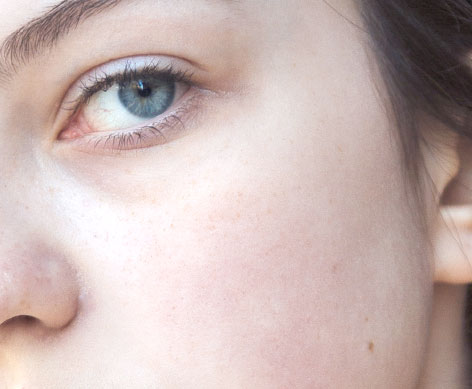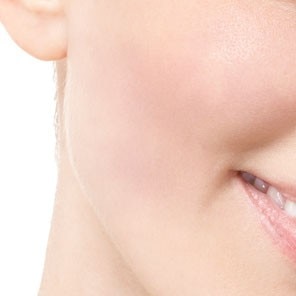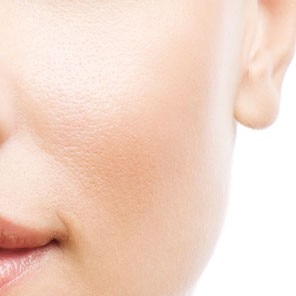Redness
Whatever your skin type, specific factors might trigger or lead to oversensitivity: Your skin reacts strongly when you’d rather it didn’t…

A question of degree
Redness periods vary in length but are always unpleasant and bothersome.
They can affect all skin types: Dry, oily or combination skin.
Intermittent redness – the “flush”: It is a sudden reaction to vasodilation caused by:
Most often, a common but somewhat stressful situation such as an exam for a student, a job interview, an emotional conversation or a conflict…
A temperature change which challenges facial blood flow.
Food that is too hot, alcohol or certain food (spices, mustard…).
Rarely, an illness. Talk to your doctor, if necessary, he will prescribe appropriate tests.
Intermittent redness that becomes permanent: Erythrosis.
During a flush, facial blood vessels dilate quickly, then go back to normal.After a while, flushing can become permanent, specially on the cheeks. That is called erythrosis.
Some blood vessels are more dilated than others and can be seen with a naked eye. These small red blood vessels (telangiectasias for your doctor) are what’s called couperosis .
Pimples appear:
Rosacea.Previously called acne-rosacea because, in addition to flushing, it involves pimples reminiscent of acne in teenagers.White pimples (pustules) particularly unsightly on the face…
Treatments
Fortunately, in each case, treatments are available…
For best results, your doctor will start by eliminating skin diseases that might lead to facial redness, such as atopic dermatitis, seborrheic dermatitis, contact eczemas and irritation dermatitis…
Then, depending on the situation, he can prescribe:
Dermo-cosmetic products that have an effect on dilated facial blood vessels, such as plant-based Ruscus, for example. In any case, it has to be used for a while in order to see results.
Oral antibiotics (Tetracyclines are the most widely prescribed).
Topical treatments, most often Metronidazole.
Electrocoagulation of dilated blood vessels.
Vascular laser, more recent, deeper effect, reduces risks of scars.


